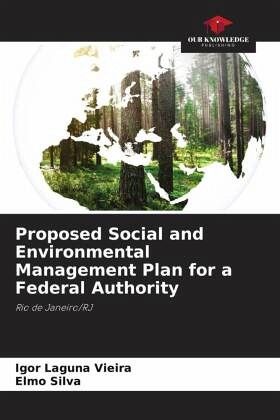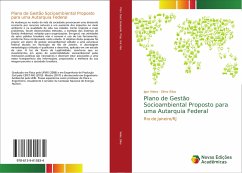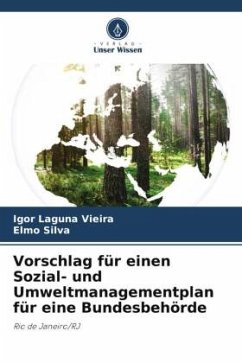
Proposed Social and Environmental Management Plan for a Federal Authority
Rio de Janeiro/RJ
Versandkostenfrei!
Versandfertig in 6-10 Tagen
34,99 €
inkl. MwSt.

PAYBACK Punkte
17 °P sammeln!
Changes in society's way of life have led to a growing demand for natural resources and an increase in impacts on the environment and the quality of life in cities. In response to these problems, methods such as Environmental Management Systems have been developed for organizations. In general, the use of such tools is not common in the activities of the Brazilian public sector, as this study has shown. The aim of this research was to propose a socio-environmental management plan for a federal authority located in the municipality of Rio de Janeiro. The methodological approach used is qualitat...
Changes in society's way of life have led to a growing demand for natural resources and an increase in impacts on the environment and the quality of life in cities. In response to these problems, methods such as Environmental Management Systems have been developed for organizations. In general, the use of such tools is not common in the activities of the Brazilian public sector, as this study has shown. The aim of this research was to propose a socio-environmental management plan for a federal authority located in the municipality of Rio de Janeiro. The methodological approach used is qualitative and descriptive, applied to a case study. In the light of the Legitimacy Theory, it is concluded that investments in socio-environmental sustainability actions by public institutions are necessary and should be associated with greater transparency of information, improving their image in Brazilian society.














